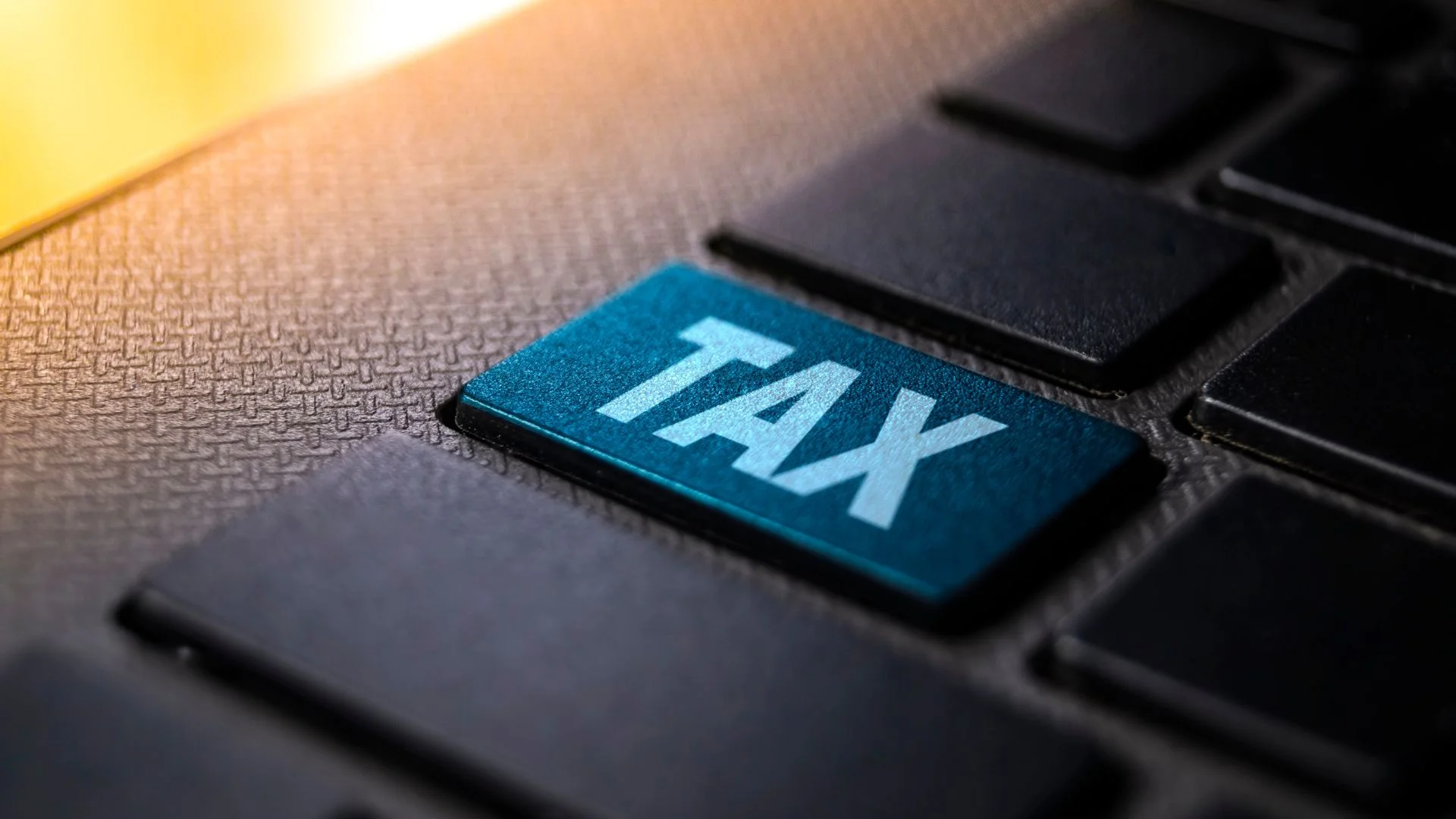
What is Making Tax Digital?
10 Sept, 20251-2 minutes
In this blog, you will learn:
- When Maxing Tax Digital will start.
- Who Making Tax Digital applies to.
- The benefits of Making Tax Digital.
- How to find and apply for the best accountancy jobs.
From April 2026, a new way to report income from self-employment and property to HMRC, Making Tax Digital, will be phased in. It requires businesses and individuals to keep digital records and use specific software to submit their tax returns online.
The primary objective is to transition from outdated paper-based systems to modern digital solutions, enhancing overall tax compliance. The shift is not just about technology adoption but also about changing the mindset towards more efficient and transparent tax processes.
When does Making Tax Digital start?
Making Tax Digital for Income Tax goes live on 6 April 2026. Making Tax Digital was originally due to become mandatory from April 2024. However, the timetable for compulsory compliance with the rules was revised in December 2022 and pushed back until April 2026.
Who does Making Tax Digital apply to?
If you have clients who are sole traders or landlords with gross income (before expenses and tax are deducted) from self-employment and property of more than £30,000, they will need to use Making Tax Digital for Income Tax.
Making Tax Digital for Income Tax requires customers, or their tax agent (this could be their Bookkeeper or Accountant) to keep digital records and send quarterly updates of their income and expenses to HMRC, using Making Tax Digital for Income Tax compatible software.
Where customers have kept up-to-date digital records using Making Tax Digital for Income Tax compatible software, the quarterly updates will be a simple check and send of a report generated by their software.
What are the benefits of Making Tax Digital?
Making Tax Digital aims to simplify the tax system for individuals and businesses. This change is a significant shift in how taxpayers interact with tax authorities. However, switching to digital tax solutions offers many benefits including:
- Minimise risk of errors
- Save time
- Real-time financial data
- Regulatory compliance
- Streamlined process
Minimise risk of errors
Manual tax filing is prone to errors which can lead to penalties and additional scrutiny from the tax authorities. By switching to digital tax solutions, it minimises these risks by automating calculations and ensuring that all required information is included.
The precision of digital systems means fewer discrepancies and more reliable financial reporting, which is crucial for audits and financial assessments.
Save time
Filing taxes can be a time-consuming process. By using a Making Tax Digital compatible software, taxpayers can automate many of the steps involved in preparing and submitting tax returns.
This frees up valuable time which can be better spent on other business activities. The automation of routine tasks also allows employees to focus on more strategic roles, enhancing overall productivity and driving business growth.
Real-time financial data
Digital tax solutions offer the advantage of real-time financial data. Businesses can access up-to-date information on their tax liabilities and financial health. This allows for better decision-making and planning, ensuring that financial resources are allocated efficiently. Real-time insights can also help businesses identify trends and make informed decisions regarding investments, expenses, and growth opportunities.
Regulatory compliance
Staying compliant with tax regulations is crucial for businesses. Making Tax Digital simplifies this process by providing clear guidelines and requirements for digital tax submissions. By using approved software, businesses can ensure they meet all necessary criteria and avoid potential fines. This streamlined compliance process also reduces the administrative burden on businesses, allowing them to focus more on their core operations.
Streamlined process
Gone are the days of filing cabinets overflowing with tax documents! Digital tax solutions eliminate the need for physical paperwork, reducing clutter and making it easier to organise and retrieve records when needed.
This not only saves physical space but also enhances the efficiency of document management, making audits and reviews faster and more straightforward.
How can I make a smooth transition to Making Tax Digital?
For a smooth transition to Making Tax Digital, there are some steps which you can take now ahead of April 2026. These include:
- Transition to a Making Tax Digital software
- Keep financial records in digital format
- Get your clients ready
- Train employees
- Submit regular updates
Transition to a Making Tax Digital software
The first step is to find a Making Tax Digital compatible software which meets the needs of your business. There are a number of different options available, ranging from simple solutions for sole traders to more comprehensive packages for larger businesses.
It is important to take the time to research each software and find one which fits your requirements. The last thing you would need is transitioning to a new software and then find out that it doesn’t work for the business. You should consider factors such as ease of use, scalability, integration capabilities, and customer support when making your choice.
Keep financial records in digital format
Ahead of Making Tax Digital being phased in from April 2026, it would be wise to keep all your financial records in digital format. This may involve scanning existing paper records and setting up a system for keeping digital copies of all future documents.
Organising your records digitally will make it easier to manage and submit them when the time comes. Implementing a robust digital filing system will also enhance efficiency and ensure compliance with Making Tax Digital regulations.
Get your clients ready
Inevitably, as we inch closer to April 2026, clients will have more questions surrounding how Making Tax Digital works and how it affects their current way of working. To get ahead of this curve, you could prepare yourself with the latest information so you can answer their questions and you know where to signpost them for help.
You could also encourage clients to take positive actions now so they are ready to work in a new way with you, ahead of the change becoming compulsory. This might include your clients changing how they keep their records, getting and starting to use new software early, or opening a business bank account. Naturally, this will depend on your client's circumstances and how your practice works.
Train employees
If you employ staff, it is important to educate them now about Making Tax Digital and how the new digital tax processes will affect how they work. You should provide thorough training on how to use the chosen software and explain the importance of maintaining accurate digital records.
A well-trained and informed team will contribute significantly to the smooth operation of your digital tax system, minimising errors and enhancing overall compliance.
Submit regular updates
By submitting regular updates to HMRC, you can stay on top of your tax obligations. The Making Tax Digital system requires quarterly submissions, which means you'll need to keep your financial records up to date throughout the year.
Regular updates not only ensure compliance but also provide an opportunity to review financial health and make necessary adjustments to business strategies.
What are the challenges to Making Tax Digital?
While Making Tax Digital offers many benefits, there are also some challenges which businesses may face when transitioning to a new way of working. Understanding these challenges and having robust strategies to overcome them will help to facilitate a smooth transition.
Some individuals or employees may be resistant to adopting new digital processes if they have worked in tax for a long time. To overcome this, it is important to emphasise the long-term benefits of Making Tax Digital, such as increased efficiency and reduced errors.
Providing thorough training and support can help to ease the transition if employees are feeling overwhelmed with new processes. Encouraging a culture of adaptability and openness to change within your business can significantly reduce resistance and foster a more positive attitude towards digital transformation.
When new softwares are introduced to a business, they often come with teething problems.
To overcome technical challenges, it is important to provide sufficient technical support to address any issues which may arise. It would also be wise to regularly update your software to ensure it remains compatible with Making Tax Digital requirements.
With digital record-keeping comes the additional responsibility of ensuring data security. You must protect sensitive financial information by using secure software and implementing robust cybersecurity measures.
Every business should regularly back up their data to prevent loss in case of technical failures. Educating your team about best practices in data security can further strengthen your organisation's defense against potential cyber threats.
Discover what Accountancy professionals are looking for in a job in 2026
As a specialist accountancy recruitment agency, we know how to support accountancy practices and private sector businesses in their mission to attract, engage and retain the best talent.
After conducting thorough research with accountancy professionals in the private sector, we created the What Accountancy Professionals Are Really Looking for in a Job in 2026 report.
This report looks into the key factors shaping job preferences and expectations within the industry and uncovers topics such as career motivations, preferred salary, perks and benefits and desired company culture.
Read the full What Accountancy Professionals Are Really Looking for in a Job in 2026 report here.
Accountancy recruitment services
As specialist accountancy recruiters, we support practices nationwide with their permanent recruitment needs.
Whether you’re searching for a tax, audit or payroll specialist, we will help you to find whoever you need to make your practice thrive.
If you’re struggling to fill a vacancy, why not get in touch with Senior Consultant Lauren Fisher on 01772 954200 to see how we can help?
Accountancy jobs
If you’re searching for your next accountancy job, why not take a look at the latest vacancies, or simply upload your CV to be notified when a relevant position becomes available.
Meet Lauren Fisher
Who is Spencer Clarke Group?
Established in 2017, we’re an award winning and progressive recruitment agency based in the heart of the North West. Our reputation is built on trust, expertise and an unwavering commitment to exceed expectations.
In 2025, Spencer Clarke Group was awarded Best Public/Third Sector Recruitment Agency and Best Temporary Recruitment Agency at the Recruiter Awards. In 2024, Spencer Clarke Group was also named Recruitment Agency of the Year.




